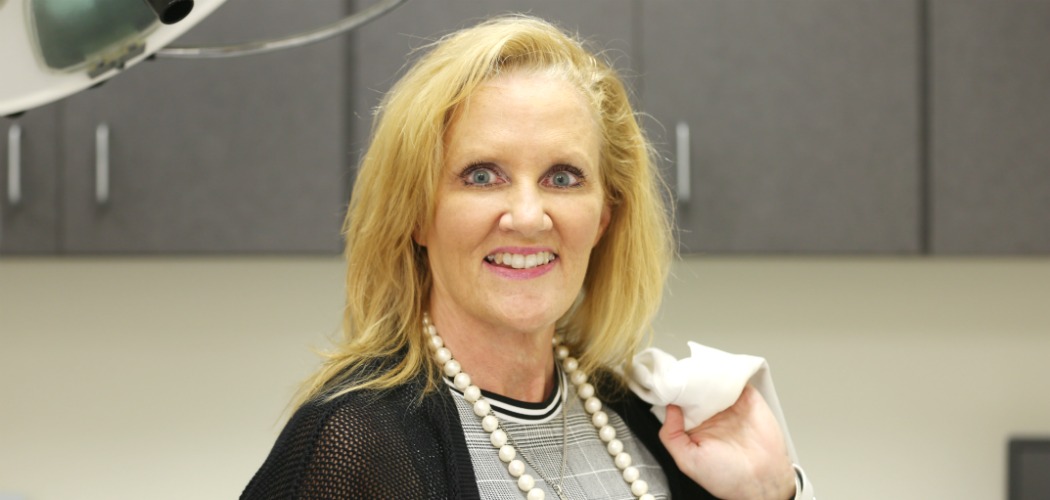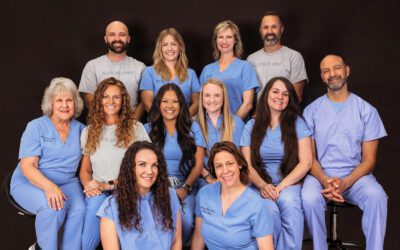[title subtitle=”WORDS Dwain Hebda
IMAGE courtesy Beth Revell, Chick Flicks Creative”][/title]
A woman sits timidly in the tidy, inviting waiting room of the cosmetic surgeon’s office. It took a lot for her to come in here; in fact, ever since the accident, it takes a lot to go anywhere. Most people don’t mean to stare, but they can’t help it.
Heck, she thinks, if I was them, I’d probably stare too.
But today she’s alone in the waiting room and so she indulges herself, bringing her hand to the side of her face. She knows every new curve and contour, so often has she stared, half-disbelieving her own tear-filled eyes at the image in the mirror. She’s a private person, but her face lays her bare – one look and complete strangers know something about her worst day; one glance and she sees pity enter the grocery clerk’s eyes.
Nobody’s perfect, her mother used to tell her when she was small, but this … this was more than a larger-than-average nose or slightly misaligned cheekbones. This is more than she can bear to carry for the rest of her life. This is why she is here.
***
In twenty-two years of cosmetic surgical practice in her hometown of Fort Smith, Ann K. Passmore, M.D., F.A.C.S., has repeatedly induced a phoenix effect in her patients. People walk in for initial consultation as one person and through Ann’s surgical skill and caring bedside manner, evolve into another. It’s a metamorphosis of which she never tires.
“Although we cannot do scar-less surgery, we as plastic surgeons try to put things back together not only to have a great functional outcome but also to have that aesthetically appealing outcome,” Ann says.
“It is very rewarding to see people gain confidence, even after they’ve had to have a medically indicated procedure such as a cancer resection or a trauma. Those are things that they didn’t ask for.”
Society has come a long way in its acceptance of cosmetic surgery, in part because it has become so commonplace. Last year there were nearly eighteen million surgical and minimally invasive procedures completed in the U.S.; of these, two million were plastic surgery and the rest were procedures such as Botox and chemical peels. Per statistics by the American Society of Plastic Surgeons, the overall total represents an increase of more than 250,000 procedures from the previous year.
Breast augmentation, liposuction, nose reshaping, eyelid surgery and tummy tuck procedures, respectively, were the top five most-performed surgeries. What those figures don’t tell you are the number of procedures done to help restore a patient after an auto accident or other trauma or the ravages of disease such as breast cancer. These are the cases that fly in the face of stereotypes about who gets cosmetic work done and why.
“The end result isn’t necessarily about smoother skin or a curvier figure or a flatter stomach,” Ann says. “It’s really about the confidence that results from those procedures and how the confidence makes one feel. It’s amazing to see my patients blossom and glow. I mean they just have a radiance.”
One doesn’t need to have suffered a disfiguring event or disease to share in this new self-confidence, Ann says. And, she cautions, just because a procedure is elective doesn’t mean it’s entirely about ego.
“People want to stay competitive in the marketplace. They want to look their best,” she says. “They want to maintain that competitive edge against someone who’s a new college graduate. The person who may be a little bit older wants to look just as good.”
Not only is cosmetic surgery not always about vanity, it’s also not exclusive to women. Ann says one of the biggest trends she’s seen in her practice is the number of men who are having work done, often for the same reasons as their female counterparts.
“Male patients want to look younger, want to stay competitive in the job market,” Ann says. “Some fellas want to maintain looking youthful for their spouse or they may be on the dating scene and they want to maintain that through middle age.
“I think men in the workplace also realize that it’s not necessarily all female driven for cosmetic surgery. Men can have it too and it doesn’t mean that they’re effeminate or anything like that. It just maintains that self-confidence, that competitive edge.”
From the time she decided on a career in medicine, Ann knew she wanted to go into a surgical specialty. Even though it was unusual to see a woman in the practice, she saw it as the perfect marriage between her medical skills and her natural artistic talent, which she indulges on her own time with painting and sketching.
“Plastic surgery has its Greek derivation from the word plastikos which means to shape or to mold,” she says. “It is an art, it’s dynamic, living art and you have to be able to formulate a three-dimensional picture of reconstructing that wound or defect or maintaining the volume and potentially replacing volume in an area.”
There’s also a counseling side of sorts to what she does. Plastic surgery may change appearance, but it doesn’t change the underlying person. She makes sure that patients understand this and that they are getting procedures for the right reasons and with the right expectations.
“I feel like my patients come to me because of my experience, my expertise and my board certification,” she says. “They also rely on me to tell them, ‘Yes this is a reasonable expectation to have from a procedure.’ Or, they also rely on me to say, ‘Hey, let’s step back just a minute. This might be a better option as opposed to something that’s grandiose.’
“Sometimes patients will come in and have a photograph and say, ‘You know, I would like to have more of an abdomen like that.’ Well sometimes that can be accomplished with plastic surgery and sometimes it’s not possible. I try to let them know what can be achieved because I think that is important and in no way do I want my patient to wear rose-colored glasses, so to speak, and have an expectation that’s not possible.”
Anne says practicing in her hometown lends a certain responsibility to her work, but also makes the end result that much more meaningful.
“It’s very rewarding for me to have someone in my office that I grew up with or that was a teacher for me or that was a friend’s parent,” she says. “It shows the patient has confidence to come to me and listen to my knowledge, my experiences.
“It is one of the most gratifying things for people to allow me to take care of them or to take care of their family member even whether I’ve just met them or if they have been a longtime family friend or someone that my mom used to know. It’s definitely a feel-good profession for me all the way around.”
Passmore Plastic Surgery
Ann K. Passmore, M.D., F.A.C.S., Cosmetic and Reconstructive Surgery, Board Certified
2717 South 74th Street, Fort Smith, Arkansas
479.573.3799
passmoreplasticsurgery.com




